
Herbert Jeffrey Hancock is an American jazz musician, bandleader, and composer. Hancock started his career with trumpeter Donald Byrd's group. He shortly thereafter joined the Miles Davis Quintet, where he helped to redefine the role of a jazz rhythm section and was one of the primary architects of the post-bop sound. In the 1970s, Hancock experimented with jazz fusion, funk, and electro styles, using a wide array of synthesizers and electronics. It was during this period that he released perhaps his best-known and most influential album, Head Hunters.

The Love Bug is a 1969 American sports adventure comedy film directed by Robert Stevenson from a screenplay by Bill Walsh and Don DaGradi, based on the story "Car, Boy, Girl" by Gordon Buford. The film is the first installment in the Herbie film series.
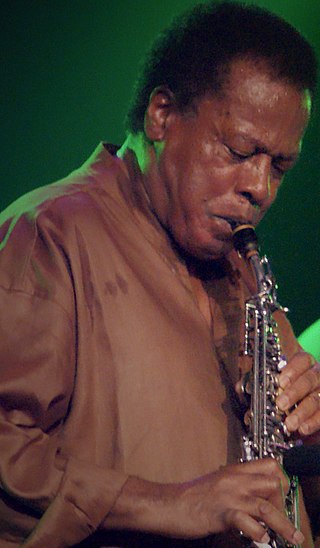
Wayne Shorter was an American jazz saxophonist, composer and bandleader. Shorter came to mainstream prominence in 1959 upon joining Art Blakey's Jazz Messengers, for whom he eventually became the primary composer. In 1964 he joined Miles Davis' Second Great Quintet, and then co-founded the jazz fusion band Weather Report in 1970. He recorded more than 20 albums as a bandleader.
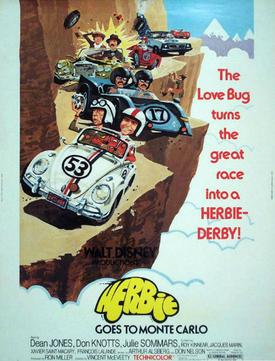
Herbie Goes to Monte Carlo is a 1977 American sports adventure comedy film directed by Vincent McEveety and written by Arthur Alsberg and Don Nelson. The film is the third installment in the Herbie film series and the sequel to Herbie Rides Again (1974). In the film, Dean Jones returns as champion race car driver Jim Douglas, joined this time by his somewhat cynical and eccentric riding mechanic Wheely Applegate. The film follows Douglas, Applegate, and Herbie as they participate in the fictional Trans-France Race, a road race from Paris, France, to Monte Carlo, Monaco.
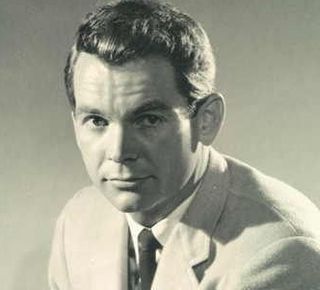
Dean Carroll Jones was an American actor. He was best known for his roles as Agent Zeke Kelso in That Darn Cat! (1965), Jim Douglas in the Herbie franchise (1969–1997), and Dr. Herman Varnick in Beethoven (1992). He was nominated for a Golden Globe Award for his performance as Albert Dooley in The Million Dollar Duck (1971). In 1995, he was inducted as a Disney Legend for his film work.
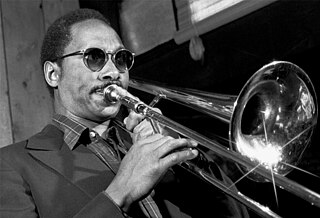
Julian Priester is an American jazz trombonist and occasional euphoniumist. He is sometimes credited "Julian Priester Pepo Mtoto". He has played with Sun Ra, Max Roach, Duke Ellington, John Coltrane, and Herbie Hancock.
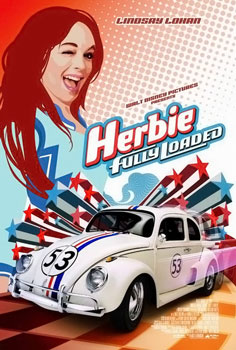
Herbie: Fully Loaded is a 2005 American sports comedy film directed by Angela Robinson from a screenplay by Thomas Lennon, Robert Ben Garant, and Smallville developers Alfred Gough and Miles Millar. The film is the sixth and final installment in the Herbie film series, following the television film The Love Bug (1997), and the first theatrical film since Herbie Goes Bananas (1980). It serves as a direct sequel to the previous films. The film stars Lindsay Lohan, Justin Long, Breckin Meyer, Matt Dillon, and Michael Keaton. It features cameos by many NASCAR drivers, including Jeff Gordon, Jimmie Johnson, Tony Stewart, and Dale Jarrett.

Herbie, the Love Bug is a sentient 1963 Volkswagen Beetle which has been featured in several Walt Disney motion pictures starting with the 1969 feature film The Love Bug. It is the protagonist of all of his movies and has a mind of its own, being capable of driving itself and often becoming a serious contender in auto racing competitions. Throughout most of the franchise, it is distinguished by red, white, and blue racing stripes from the front to the back bumper, a pearl white body, a racing-style number "53" on the front luggage compartment lid, doors, engine lid, and a yellow-on-black 1963 California license plate with the registration "OFP 857".

Herbie Rides Again is a 1974 American comedy film directed by Robert Stevenson from a screenplay by Bill Walsh, based on a story by Gordon Buford. The film is the second installment in the Herbie film series and the sequel to The Love Bug (1968). It stars Helen Hayes, Stefanie Powers, Ken Berry, and Keenan Wynn reprising his villainous role as Alonzo Hawk.

Frank Denny De Vol was an American bandleader, arranger, composer and actor. As a composer, he was nominated for four Academy Awards.

Gerald Stenhouse Jemmott is an American bass guitarist. Jemmott was one of the chief session bassists of the late 1960s and early 1970s, working with many of the period's well-known soul, blues, and jazz artists. He has won two Grammy Awards.
David Samuel Pike was an American jazz vibraphone and marimba player. He appeared on many albums by Nick Brignola, Paul Bley and Kenny Clarke, Bill Evans, and Herbie Mann. He also recorded extensively as leader, including a number of albums on MPS Records.
Herbie is a fictional sentient anthropomorphic 1963 Volkswagen Beetle.
Carlos Valdés Galán, better known as Patato, was a Cuban conga player. In 1954, he emigrated from La Habana to New York City where he continued his prolific career as a sideman for several jazz and Latin music ensembles, and occasionally as a bandleader. He contributed to the development of the tunable conga drum which revolutionized the use of the instrument in the US. His experimental descarga albums recorded for Latin Percussion are considered the counterpart to the commercial salsa boom of the 1970s. Tito Puente once called him "the greatest conguero alive today".
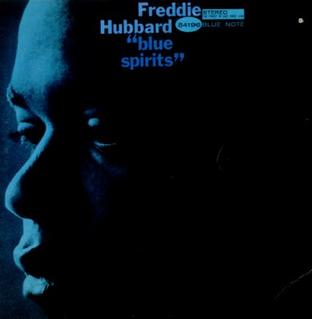
Blue Spirits is an album by trumpeter Freddie Hubbard released on the Blue Note label. It would be his last studio album for Blue Note, recorded in the 1960s. It features performances by Hubbard, James Spaulding, Joe Henderson, Harold Mabern, Jr., Larry Ridley, Clifford Jarvis, Big Black, Kiane Zawadi, Hank Mobley, McCoy Tyner, Bob Cranshaw, Pete LaRoca. The CD release added tracks from a 1966 session featuring Hosea Taylor, Herbie Hancock, Reggie Workman, and Elvin Jones.

Blow-Up is a soundtrack album by American jazz pianist Herbie Hancock, featuring music composed for Michelangelo Antonioni's 1966 film Blowup. MGM Records released the album in the United States on 20 February 1967, and in the United Kingdom on 10 May. The album features performances by Hancock, trumpeters Freddie Hubbard and Joe Newman, alto saxophonist Phil Woods, tenor saxophonist Joe Henderson, guitarist Jim Hall, bassist Ron Carter and drummer Jack DeJohnette. Although Jimmy Smith is credited with playing organ on the album, some sources claim it was actually Paul Griffin who was at the sessions.
This is a Herbie Mann discography. Mann spent his early years recording for a number of jazz oriented record labels, and signed with Atlantic Records in 1961. He recorded with them through the 1960s and 1970s, including their subsidiary Cotillion Records, where he ran his own imprint, Embryo Records, in the 1970s, for his records as well as other musicians. Mann also ran two independent record labels, Herbie Mann Music in the 1980s, and during the 1990s, Kokopelli Records. Minor reissues are not noted.

The Beat Goes On is an album by American jazz flautist Herbie Mann released on the Atlantic label in 1967. The album features tracks from seven separate sessions recorded in 1964, 1966 and 1967.
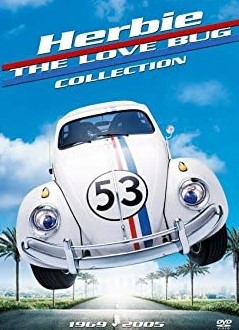
The Herbie franchise consists of American sports adventure comedy theatrical feature films, one television film, a television series, and other multimedia releases. The overall story centers around the titular Herbie, a sentient anthropomorphic 1963 Volkswagen Beetle with a mind of his own and capable of driving himself. The vehicle is oftentimes a legitimate contender, though the underdog contestant in competitive races, but to a greater degree assists his human owners in bettering their lives.
Richard Herbert Seneviratne, popularly as Herby Seneviratne, was an actor and filmmaker in Sri Lankan cinema.














